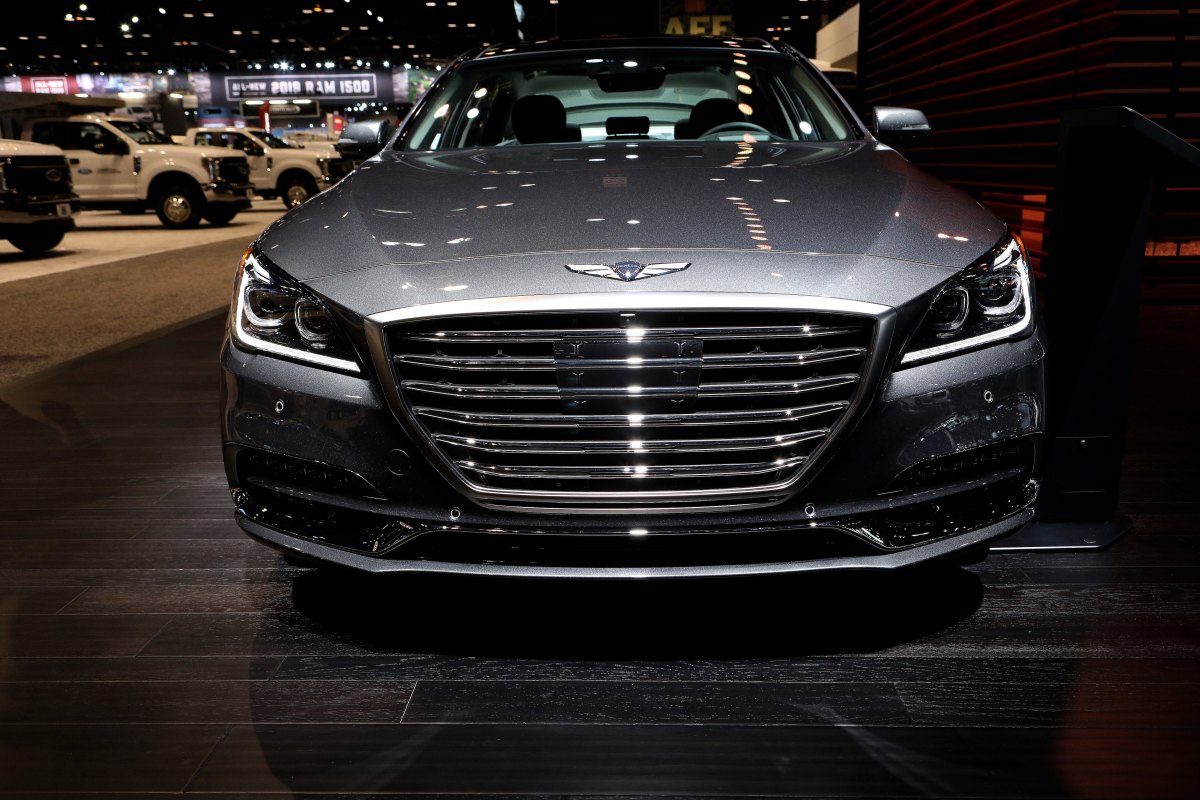Genesis has very little margin for error — and that has nothing to do with Phil Collins getting old.
We’re talking about the automaker here — the South Korean challenger to the likes of BMW, Mercedes-Benz, Audi, Jaguar, Lincoln and Cadillac. At first glance, the company seems to be in too deep — an illegal alien offering its wares and trying to wrestle market share from companies that spent their entire histories defining the meaning of automobile.
To pull off that challenge, every Genesis model must excel to convince the buyer with $50,000 or so in the pocket to turn away from the usual suspects and give this new option a chance. Buyers know what they’re getting if they buy Merc or Beemer. They need to learn what Genesis offers and why they are the superior choice.
The original Genesis was a Hyundai model. The car sat atop of the make’s line, looking down on strong sellers like the Elantra and Sonata. The luxury sedan was the Hyundai halo where all of the company’s technological and engineering advances broke through first before trickling down through the rest of the line.
In 2015, Hyundai took a page from its Japanese competitors and decided that throwing it all away was a safer bet and broke the Genesis name off into its own company. The big three car builders out of Japan each divide their vehicles into general consumer and luxury brands. Toyota builds the Corollas and Camrys that millions drive, while sister company Lexus sells exclusively mid-range luxury rides. While Honda knocks out Civics and CR-Vs, Acura wears a fancier badge. And, while Nissan sales rank it as the number one automaker in the world, it’s their relatives at Infiniti that come with heavier price tags.
So, Hyundai chose to turn it on again and separated its one luxury build off into its own entity that it might be fruitful and multiply. Now, Genesis Motors makes three vehicles: The G90, the G80 and the G80 Sport. All three are sedans and intended for the pure luxury driver (and occasional livery duty). The Genesis appearances at its first couple big auto shows previewed an upcoming crossover SUV, but Hyundai’s fancier shop is all about four doors and a trunk for now.
After a week-long crack at the G80, this reviewer can report that the build quality and driving experience are easily on par with its more established rivals. The rear-wheel-drive and four-wheel independent suspension combine for an utterly smooth, grounded feel.
The power is not brutal and waits for a minor turbo lag, but it won’t leave you behind either. There’s plenty to go around with any of the available powertrains: A 3.3T Sport Six Cylinder (365 horsepower), a 3.8 liter Six Cylinder (311 horsepower) and a 5.0 liter V8 (420 horsepower).
The clearest shot across the bow from Genesis toward Europe and Japan is the G80’s absolutely maxed-out set of convenience and safety features. All the normal bangs and whistles are at hand (…power everything, heated seats and steering wheel, infotainment system, etc.), but safety features include (…deep breath):
* Vehicle Stability Management
* Electronic Stability Control with Traction Control System
* Anti-lock Braking System
* Brake Assist
* Blind Spot Detection with Rear Cross-traffic Alert and Lane Change Assist
* Lane Departure Warning with Lane Keep Assist
* Automatic Emergency Braking with Pedestrian Detection
* Driver Attention Alert
* Energy-absorbing steering column
* Front and rear crumple zones and 5-mph bumpers
* Hood buckling creases and safety stops
* Bodyside reinforcements
* Tire Pressure Monitoring System with individual tire pressure indicator
* Shift Interlock System
* Front and rear parking sensors
* Rearview camera with dynamic parking guidelines
So, Genesis and its G80 rest assured knowing none of the more established cars out there are going to “out feature” them in any luxury car.
If there’s one aspect in which Genesis has yet to find its full footing, it’s styling. The make still searches for a singular touch that immediately identifies it as a Genesis – beyond its admittedly very slick winged badge.
BMW has its Hofmeister Kink – that hockey stick groove that shirts the doors on any Bavarian model. Lexus has its large, honeycomb grille. Cadillac took on sharp stealth angles and pointed side panels. Alfa Romeo has the classic inverted triangle face. You can spot all of them a mile away — moving or parked — and ID the car easily. Genesis is still searching for that visual trigger and has to rely for now on the invisible touch of smoothness the driving experience offers.
Now three years into its gutsy mission to form the Korean auto industry’s first world-renowned luxury automobile line, Genesis is doing everything necessary to compete with its mature rivals from Europe and Japan. Its cars are well-built and well-equipped. The driving experience is comparable to any mid-range luxury machine on Earth. To stay in the race in a busy automotive land of confusion, Genesis simply has to stay the course, and that’s all.
This article was featured in the InsideHook newsletter. Sign up now.
























